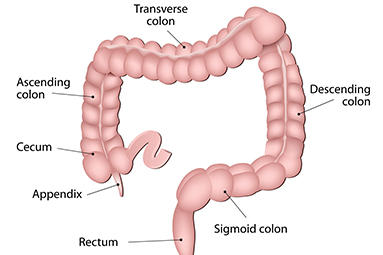On the surface, unexplained weigh loss can be a blessing for some people. Unfortunately, when it’s caused by a digestive disorder, your body may not be getting the nutrition it needs to function.
Many of our patients suffer from chronic constipation, which can be caused by not having enough fiber in the diet, some medications or even a change in routine. Constipation is usually not a sign of a serious medical condition.
Remember, we can deal with issues associated with any part of your digestive track. Regardless of what we were originally seeing you for, we’re always here to help if a new issue comes up.
When your gastroenterologist is performing an endoscopic procedure, you will be consciously sedated. This means you will have a combination of drugs that block the pain and relax you, but you may or may not stay awake. Many patients have no memory of what occurred during the procedure.
One set of gastrointestinal disorders is called functional disorders. These disorders are ones in which the bowels look normal, but they don’t function normally. Disorders like Irritable Bowel Syndrome and constipation are included in this set.
I’ve been having occasional stomach pain lately, though it goes away quickly. If the pain is unusual or persistent, check with your gastroenterologist. Catching any condition in its early stages greatly enhances the prospects of a complete recovery. And knowing whether that pain signals something more serious or not will give you peace of mind.
What should you expect if you see the gastroenterologist for diverticulitis? Often, the treatment will include a program of rest, pain medication, a restricted diet for a short period, and antibiotics.
While Crohn's disease often affects the small intestine, ulcerative colitis is a condition of the large intestine. Like, Crohn's, there is no known cause for ulcerative colitis, which is often diagnosed with an endoscopy.
Are you concerned about your risk factors for colon cancer now that someone in your family has been diagnosed with it? Scheduling a screening can help you determine the extent of your risk factors.
Irritable Bowel Syndrome is a condition in which the colon muscles spasm more often than normal. Symptoms can cause gas, bloating and alternating diarrhea and constipation. Treatment can vary depending on what foods affect the patient.
Irritable bowel syndrome is estimated to affect 1 out of 10 people in the United States. Stomach pain and bowel changes are the most common symptoms. IBS is often a long-term condition that can come and go, so please see us as soon you notice symptoms.
Have you noticed an increase in the amount of abdominal pain your experience? Sharp, piercing pains can be signs of appendicitis, colon cancer, gallstones and kidney stones.










